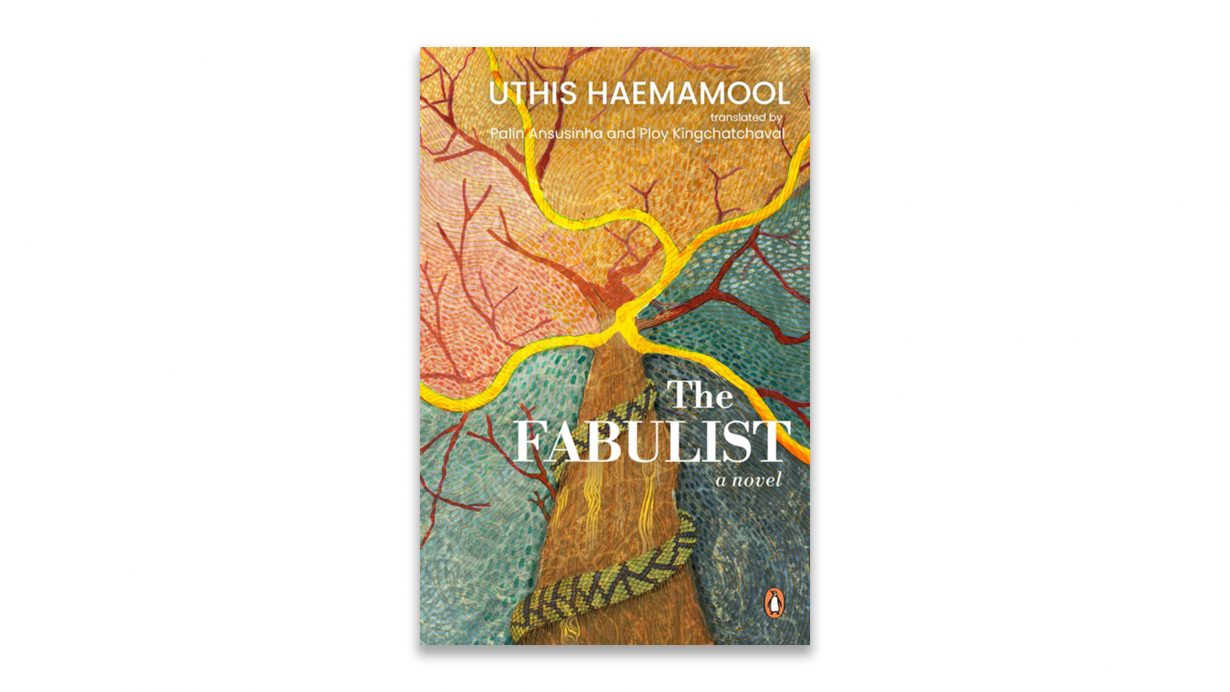The author’s episodic and propulsive novel, The Fabulist, targets Thailand’s historiography and back-slide into authoritarianism

Who is the titular yarn spinner in Uthis Haemamool’s episodic and propulsive novel? Our first candidate is the cantankerous old woman who recounts the journey of her immortal spirit – its transmigration from a thlok tree to a naga, a tiger, a deer, a stone statue and a human – to her great-grandchildren in ‘Act 1’. The next to emerge is one of her two sons, Dr Siam: a stroke victim who, in ‘Part 2’, is pursued through the afterlife by an ‘albino buffalo lord’-cum-‘karmic creditor’. He’s followed by the soap-opera-obsessed wife to a mean husband of ‘Episode 3’, the male ghostwriter of family drama of ‘Book 4’ and, finally, the sage twentysomething great-granddaughter (to the old woman) of ‘Folder 5’.
None, however, quite fit the bill. With their divergent accounts and conflicting histories, these five storytellers – members of a single, small-town Thai family, it slowly transpires – are unreliable narrators. Yet over the course of the novel, their palimpsestic stories come to feel like truths of a sort; the untidy seams and obscure gaps of their sprawling cross-generational chronicles are more honest, more true to life, we come to sense, than the fabulist that loiters on the novel’s periphery: the nation-state that peddles a single, neat, unifying legend.
Haemamool, the fortysomething author of seven novels, is one of a generation of Thai creatives incensed at their homeland’s back-sliding into authoritarianism, all in the name of preserving religion, state and monarchy. ‘Thailand’, he said in a 2020 interview, ‘is strangulated into having one voice and one story… there is one narrative that didn’t ask to be included, but keeps getting fatter and fatter, taking over more and more space, like a balloon expanding inside a tight one square metre.’ The Fabulist, a translation of the third novel in his acclaimed Kaeng Khoi trilogy (Kaeng Khoi being the district in central Thailand’s Saraburi province where it is set and Haemamool was born), doesn’t so much burst the balloon as create a nebulous body – a composite of origin myths, recorded history, religious fables and domestic high-drama – that itself gets fatter and fatter over the book’s duration, pushes back against the hegemony and erasure of official Thai historiography.
Its Gramscian centring of the subaltern consciousness, its writing into history of those written out, is well-traversed literary terrain, but Haemamool does it singularly by fleshing out about as many fictional modes as he does characters (an approach telegraphed by the jarring eclecticism of the chapter names). In Act 1 the old woman echoes Thai storytelling traditions by reciting a folkloric tale that blends her rebirths with the birth of the nation, recounts the domain of creatures (of which she is part) becoming the domain of Kings. “It doesn’t matter who you were before, because now, everything belongs to Siam: the mountains, the trees, the streams, the ancient places of worship, and the lives of all peoples”, a hermit tells her at one point. Yet the uninterrupted storybook oratory of this section contrasts, somewhat abrasively, with everything that follows: Part 2’s extensive use of footnotes – longer than the main narrative, they seize and violate Dr Siam’s story – as well as the family soap-opera of Episode 3 and the postmodern pyrotechnics of Book 4.These metafictional approaches bewilder at certain points and dazzle at others. Far from just an earnest gathering of marginal figures, or an exercise in counternarratives that fluctuates wildly between liberating and thwarting Haemamool’s characters, The Fabulist culminates with a satisfying frame story and coda steeped in pungent, Buddhism-inflected thought (the Thai title, , or ‘Juti’, means both death and rebirth) and sociological ambivalence. Towards the end, the wise-beyond-her-years great-granddaughter tries to make sense – as we have – of all the splayed narrative threads before her. ‘In a world full of dotted lines and incoherence, I want beginnings and continuity,’ she remarks, ‘so I bind myself to them. That is how we pave our course, our time, our place, our stories.’ In doing so, she implicates all of us – not just an individual or a particular country – in the latent tyranny of the tale.
The Fabulist by Uthis Haemamool, translated by Palin Ansusinha and Ploy Kingchatchaval. Penguin Books, ฿1,053 (softcover)